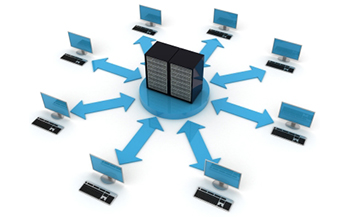Why Hybrid Clouds are More Than Just Another Trend
It should come as no surprise that many small to midsize business owners take pride in overseeing every aspect of their startup business. Naturally, many are apprehensive when it comes to surrendering control of their servers, their data, and their applications.
The downside of this need for control is that operating and maintaining everything onsite can be time consuming, super expensive, and it can make your business more vulnerable to failure related downtime and cyber threats.
Although everything can be stored in the cloud at a fraction of the cost, many aren’t responsive to the idea of sharing the infrastructure their technology runs on.
The great thing about the cloud is it’s not an all or nothing thing. This is exactly why so many small to midsize businesses have turned to hybrid cloud solutions. Just as they name implies, hybrid cloud solutions are both on and off premises. It’s the best of both worlds. An entrepreneur can still control certain aspects of the business on-site, but simultaneously exploit the cloud’s cost effectiveness and overall scalability.








